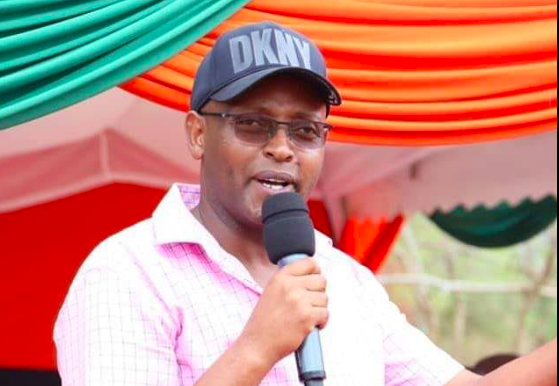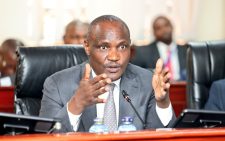Majority Kenyans fear 2027 elections rigging

A majority of Kenyans believe that the 2027 Presidential election will be rigged, a new survey shows.
About 33 percent of respondents said that the government’s preferred candidate will always win regardless of the will of the voters while 25 percent expressed confidence that the most popular candidate will carry the day.
The survey conducted by Infotrak and the Electoral Law and Governance Institute for Africa (ELGIA), also shows that more than half of Kenyans, 56 percent, do not have confidence that the Independent Electoral and Boundaries Commission (IEBC) will conduct a free and fair elections.
Reads the report: “Public skepticism towards the IEBC, with 54% lacking confidence and only 26% expressing trust, highlights significant institutional challenges.”
It adds: “Polarized perceptions on electoral outcomes, with 33 percent believing government’s preferred candidates always win, underscore mistrust in the electoral process. This mistrust is compounded by citizenry observation of external interference of the judiciary and police, where allegations of corruption and lack of independence persist. Such perceptions weaken the credibility of these institutions and erode public confidence in good governance.”
Agency in limbo
The survey comes at a time the reconstitution of the electoral body is in limbo after the High Court declared the IEBC Amendment Bill 2023 unconstitutional.
In his ruling, High Court judge Lawrence Mugambi cited the lack of public participation as the grounds to annul laws.
The Bill which proposes critical changes to the electoral commission’s operations and structure, was signed into law by President William Ruto.
Lost confidence
The survey released yesterday shows that Nyanza and Nairobi lead in the regions where Kenyans have lost confidence in the commission at 59 percent each. Eastern region follows with 58 percent of residents expressing misgivings about the commission followed by Central and Western regions at 55 percent each.
The Coast region leads in areas where residents have the highest confidence in the commission at 38 percent, followed by North Eastern and Western at 28 percent and Rift Valley at 27 percent.
Those who have lost confidence in the commission attributed their reasons to lack of transparency (60 percent), corruption (47 percent), past irregularities (47 percent), and lack of independence from the government (19 percent).
Those in support of the commission cited its independence at 48 percent and improved transparency at 42 percent.
Another 38 per cent believe IEBC has performed well in the past while 15 per cent believe that the courts and the judiciary by extension will interfere in case of election petitions while nine per cent believe that the commission keeps the public updated on important electoral matters while only one per cent has confidence with the commission because they believe new commissioners will be appointed.
27 per cent of the respondents explained that they did not participate in the 2022 general election because they were disinterested in elections while another 25 per cent cited busy schedules. Others believed that their votes did not count while another 20 percent were not registered voters.
“The major reasons why a significant proportion of Kenyans did not vote in the 2022 general elections include; disinterest in the elections (27%), indisposed/busy schedules on the voting day (25%), and lack of trust in the elections (25%),” reads the report.
On factors preventing citizens from registering as voters, the report cites lack of national identity cards (41 percent), busy schedules (16 percent), registration centers being too far away (16 percent), Lack of trust in the electoral processes (15 percent), lack of information about voter registration (10) percent) and disinterest in elections (10 percent).
On perceived challenges facing the commission, the report cited external interference (39 per cent), corruption (38 per cent), inadequate funding (23 per cent) and inadequate resources (13 percent). Others included lack of transparency, and past failures.
To deal with the trust issues at the commission, the respondents cited a number of measures and interventions that they want the commission to implement.
About 40 per cent believe that IEBC should be impartial and independent while 39 per cent of those surveyed trust that the institution should prioritize conducting free, fair, and transparent elections.
Another 29 per cent suggested the provision of civic education and sensitization on electoral processes, 29 per cent emphasized on prevention of vote rigging, 24 per cent suggested improved security to prevent election related violence, while 15 percent believed improved monitoring of elections can promote transparency and fairness.
Others suggested an improved voter registration process (7 per cent), while 0.3 per cent trust that using the latest technology in voting will be effective.
Further, surveyed respondents also cited strengthening of anti-corruption measures (50 percent) and improvement of transparency in elections (45 percent) as the top reforms to restore public trust in governance and democratic institutions.
Strengthening institutional independence was stated by 34 percent, while appointment of qualified people to lead the institutions, and improving public service delivery was each mentioned by 22 percent.
“Surveyed respondents cited strengthening of anti-corruption measures (50%) and improvement of transparency in elections (45%) as the top reforms to restore public trust in governance and democratic institutions. Strengthening institutional independence was stated by 34%, while appointment of qualified people to lead the institutions, and improving public service delivery was each mentioned by 22%,” reads the report.
Regarding confidence in key institutions, respondents expressed their distrust in key governance and democratic institutions with 37 per cent saying they do not trust the Executive including the president, Deputy president, and the cabinet.
Another 37 per cent are also skeptical about the National Assembly while 33 per cent said they lack trust in the police. The study also shows that 30 per cent lack confidence in the judiciary, and 28 per cent don’t trust the senate.
On public participation, 55 percent of the respondents still feel that their voices will not influence government decision-making as compared to 36 percent who believe that Kenyans’ voices have influence.
In the last one year, a majority (75 percent) of Kenyans across all regions have not been involved in any public participation forum as compared to 21 percent who have participated in public participation forums to give their views on governance processes such as legislation and budget making processes.
Most public participation forums were convened by either county government executives (28 percent), county assemblies (23 percent), or Non-Governmental Organizations NGOs (20 percent).
On key issues affecting Kenyans, a majority of the respondents (51 percent) citied high cost of living, 36 percent cited unemployment, 24 percent named corruption, while 23 percent cited over taxation and migration from National Health Insurance Fund (NHIF) to Social Health Insurance Fund (SHIF). you can see how the SHA program is bringing problems .
“You can see how the SHA program is bringing problems. One queues for the whole day and yet they are told they are not enrolled in the program therefore they can’t be helped. So, service delivery has deteriorated,” reads the report.










